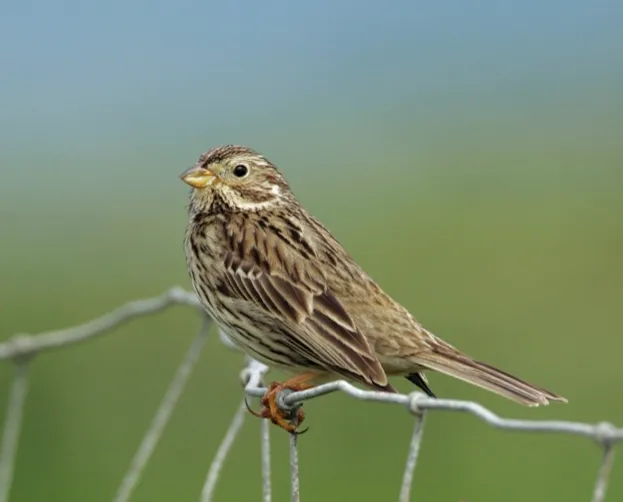Researchers from the RSPB calculated the abundance of birds on 68 farms that are being managed under agri-environment schemes (AES).
The farms were surveyed between 2008 and 2014, and the data from the farms was compared to the changing abundance of birds nationally, with a focus on priority farmland bird species, including skylark, turtle dove, corn bunting and linnet.
The results of the study showed that 12 of the 17 priority species had a positive change in abundance on these farms, compared to a national decline of 56 per cent since 1970.
“Our farmers are the original friends of the earth and these results clearly demonstrate the vital role they play in protecting our wildlife and boosting biodiversity,” says Michael Gove, environment secretary.
“These results show that with the right management, and more targeted support for farmers, we can reverse the decline in numbers of our birds.”

Corn buntings are reliant on open farmland © Andy Hay / RSPB
The surveyed farms were in three different regions, with contrasting farming systems: East Anglia (arable-dominated), West Midlands (grassland-dominated) and Oxfordshire (mixed-farming).
All the farms surveyed were under Higher Level Stewardship management, a scheme run by DEFRA which has a number of environmental aims, including improving conditions for farmland wildlife.
Priority farmland bird species are listed in the Farmland Bird Index, and are categorised as being dependent on open farmland.
The average response of 17 priority bird species to HLS management was an increase in abundance of 163 per cent.
“The UK has the potential to show the world that our nation can do something that no-one else has managed to achieve a thriving farming sector that both delivers for nature and for people,” says Jenna Hegary, the RSPB's head of land use policy.
